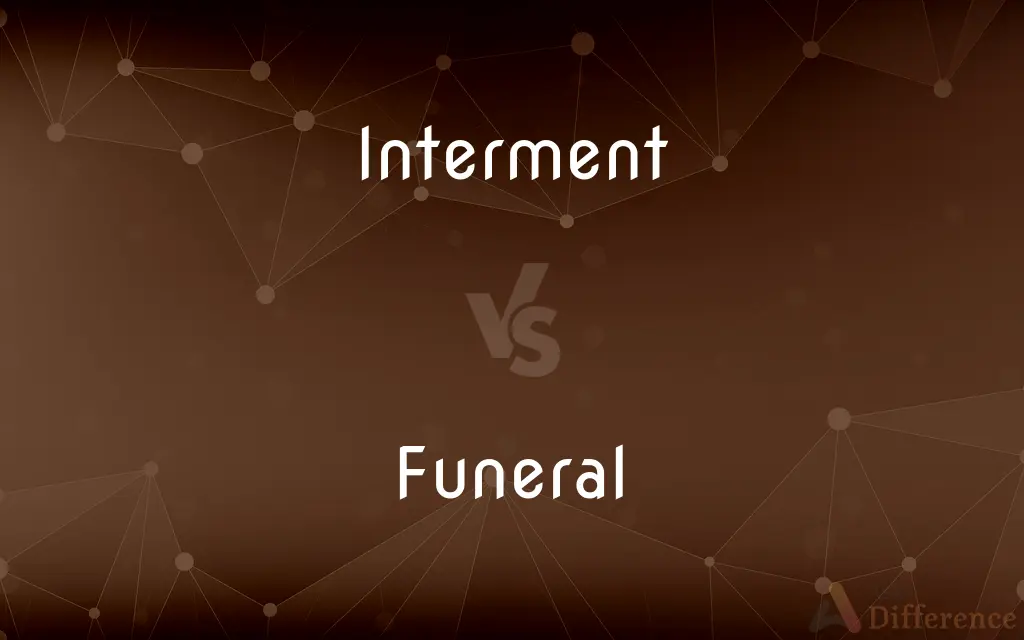Interment vs. Funeral — What's the Difference?

Difference Between Interment and Funeral
ADVERTISEMENT
Compare with Definitions
Interment
The act or ritual of interring or burying.
Funeral
A funeral is a ceremony connected with the final disposition of a corpse, such as a burial or cremation, with the attendant observances. Funerary customs comprise the complex of beliefs and practices used by a culture to remember and respect the dead, from interment, to various monuments, prayers, and rituals undertaken in their honor.
Interment
The act of burying a dead body; burial.
Funeral
A ceremony or service held shortly after a person's death, usually including the person's burial or cremation
In the afternoon, he'd attended a funeral
A funeral service
Interment
The act or ceremony of depositing a dead body in the earth; burial; sepulture; inhumation.
ADVERTISEMENT
Funeral
A ceremony or group of ceremonies held in connection with the burial or cremation of a dead person.
Interment
The ritual placing of a corpse in a grave
Funeral
(Archaic) The eulogy delivered or the sermon preached at such a ceremony.
Interment
The burial of a corpse in a grave or tomb, typically with funeral rites
Interments took place in the churchyard
The day of interment
Funeral
The burial procession accompanying a body to the grave.
Funeral
An end or a cessation of existence.
Funeral
(Slang) A source of concern or care
If he doesn't meet the deadline, it's his funeral.
Funeral
Of, relating to, or resembling a funeral.
Funeral
A ceremony to honour and remember a deceased person. Often distinguished from a memorial service by the presence of the body of the deceased.
Many mourners turned up at the local artist's funeral to pay homage.
Funeral
A funeral sermon.
Funeral
(uncommon) funereal
Funeral
The solemn rites used in the disposition of a dead human body, whether such disposition be by interment, burning, or otherwise; esp., the ceremony or solemnization of interment; obsequies; burial; - formerly used in the plural.
King James his funerals were performed very solemnly in the collegiate church at Westminster.
Funeral
The procession attending the burial of the dead; the show and accompaniments of an interment.
Funeral
A funeral sermon; - usually in the plural.
Mr. Giles Lawrence preached his funerals.
Funeral
Pertaining to a funeral; used at the interment of the dead; as, funeral rites, honors, or ceremonies.
Funeral
A ceremony at which a dead person is buried or cremated;
Hundreds of people attended his funeral
Share Your Discovery

Previous Comparison
Lollipop vs. Sucker
Next Comparison
Graduand vs. Graduant














































